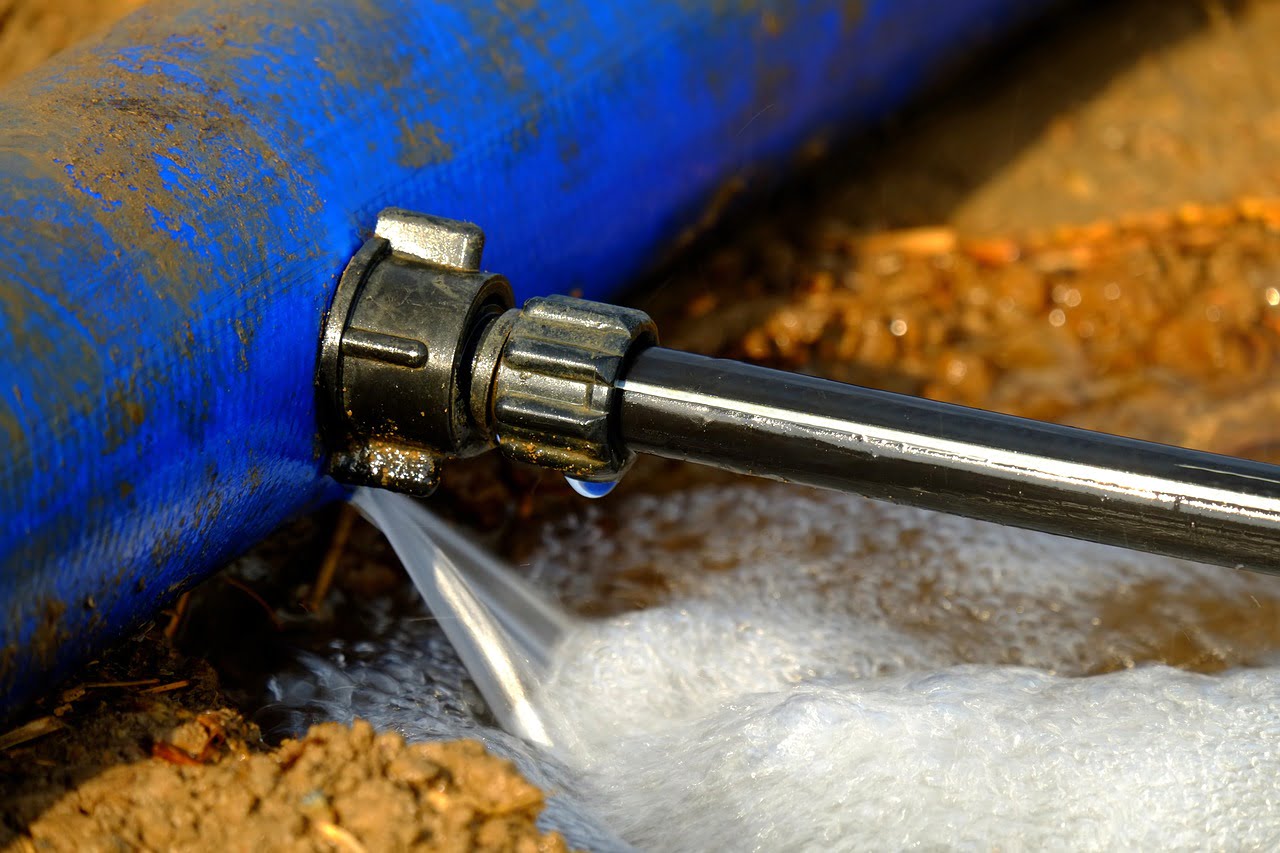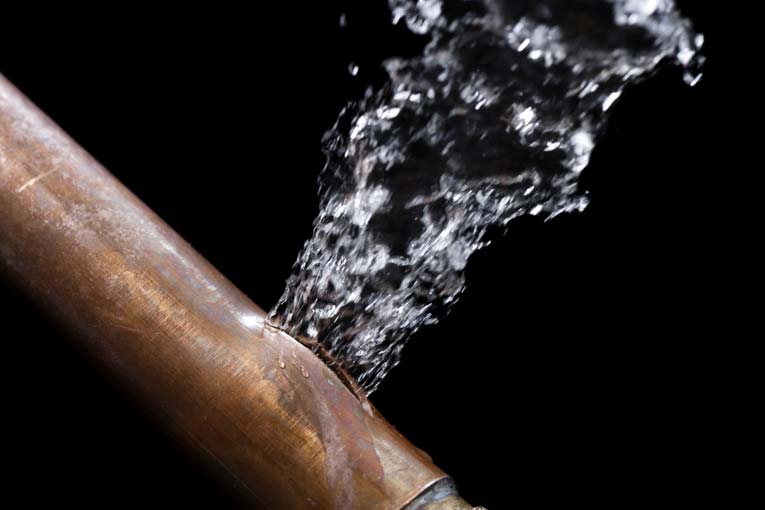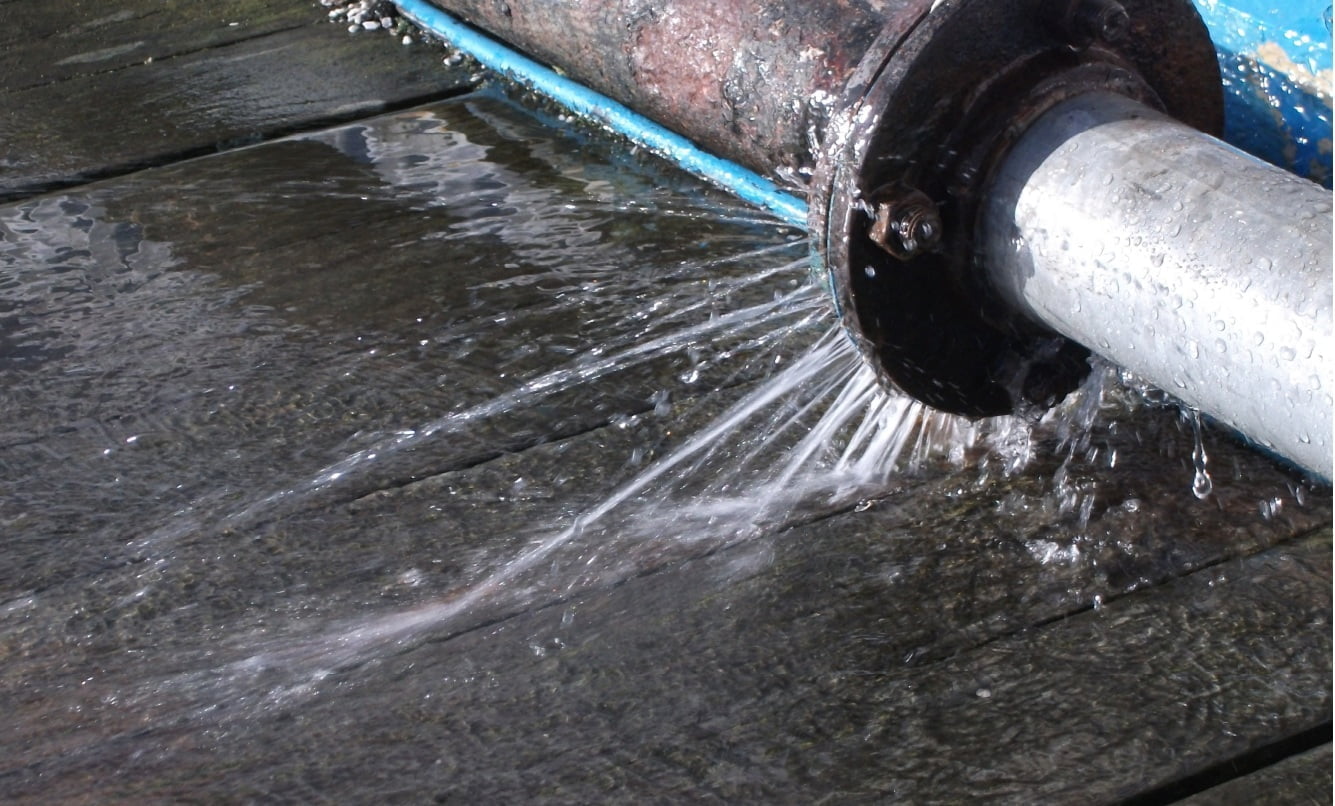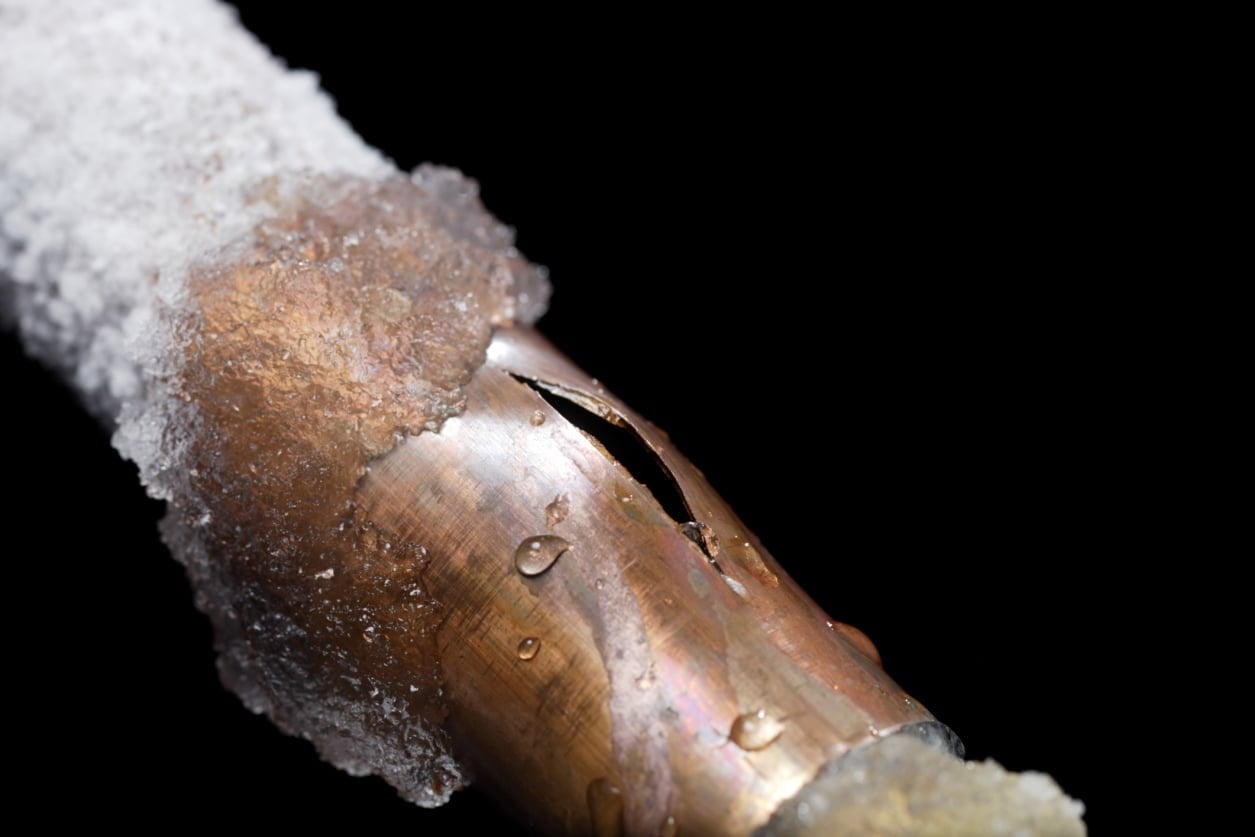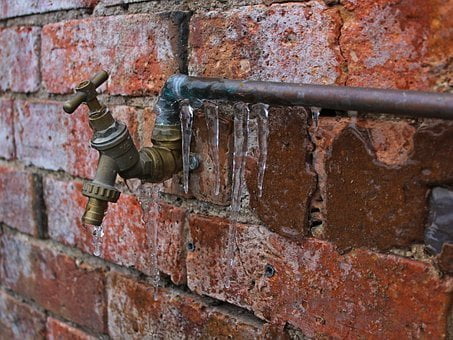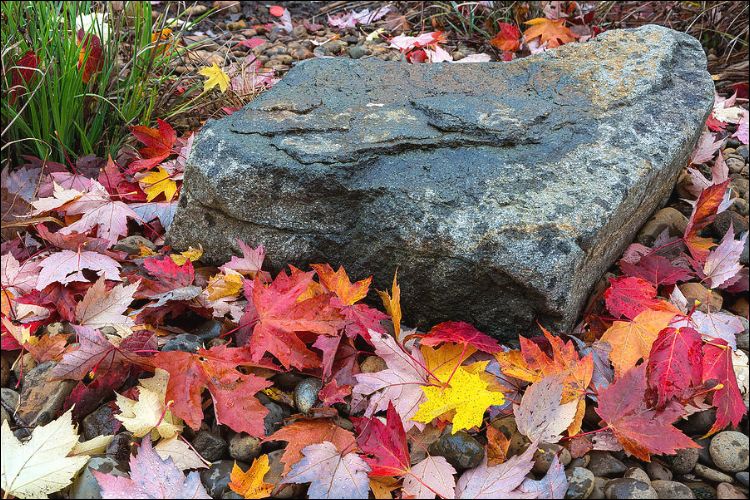There are so many beautiful things about winter. However, there also some costly damages that winter weather can bring. One such damage is frozen pipes. Water can easily freeze inside of pipes and water systems during very cold weather, which causes them to burst. A burst pipe can cause major problems to your home in minutes. It can cause lasting damage if the water is left running for a long time. Thankfully, there are some tips for preventing a water leak at your home. Today, I’m going to go over these tips so that you don’t have to pay any expensive plumbing bills this winter. Let’s dive in!
How to Prevent a Water Leak
Wrap Foam Around Your Pipes
The best way to prevent a water leak is to insulate your pipes. Foam is great for insulating pipes. You can purchase foam tubes with a slit on the side at most hardware stores. Cut the tube to the length you need, pull it open and push it over and around your pipe. Use duct tape to secure the foam if needed.
Keep Garage Doors Closed
If you have pipes in your garage, it is important that you keep your garage doors closed. Open garage doors let cold air in, which will cause your pipes to freeze. As a result, you may get a water leak. Heating your garage is even better, but simply keeping your garage doors closed can do wonders.
Open Kitchen and Bathroom Cabinet Doors
Keep your kitchen and bathroom cabinet doors open during cold days. This will allow warmer air to circulate around the plumbing. If you have young children or pets, make sure you remove any harmful cleaners and household chemicals before you open your cabinet doors.
Image Source: Home Tips
Drain Your Water Heater
If you live in a location with hard water, sediment can build up in your tank, causing rust to develop inside. This rust can get into your drinking, cooking, and bathing water. If your hot water heater already is rusted, consider purchasing a new one before cold weather sets in. If it isn’t rusted yet, go ahead and drain out your water heater.
Disconnect Your Hoses from Outdoor Faucets
Leaving a hose connected outside in winter can cause water left inside to freeze and expand. As a result, your faucets and connecting pipes will become frozen. Before the cold weather sets in, disconnect any outdoor hoses that you have. Put them away inside your garage so that your hoses don’t become damaged by the weather either.
Let the Cold Water Drip from a Faucet
Another easy way to prevent a water leak is to let cold water drip from your faucet. When water is running, it cannot freeze. Even if you don’t have a lot of water coming out, it will still help prevent the water from freezing.
Keep Your House Warm
Make sure you keep your house warm on cold days. Although you may want to save money on heating bills, you’ll save much so much more money by not letting your pipes freeze.
Close and Drain Shut-Off Valves Leading Outdoors
If you have interior shut-off valves leading to outdoor faucets, close them and drain the water from outside lines. If there is any water that remains in the lines, they could freeze and cause major damage.
Add Insulation to Your Home
By insulating your home, your home will become warmer, which lessens the chance of your pipes freezing. Make sure you add insulation to attics, basements, and crawl spaces. To prevent drafts, seal cracks and openings around windows, doors, and at sill plates, where the house rests on its foundation.
Image Source: Pan Handle
How to Thaw Frozen Pipes
Turn on the Faucet
If your pipes are frozen but aren’t leaking yet, it is important that you try to thaw them right away. To begin, turn on your faucet. As the frozen pipes thaw, the water will need to flow through.
Apply Heat to the Pipe
Wrap an electric heating pad around the frozen pipe. You can also use an electric hair dryer or a portable space heater. If you use a space heater, make sure it is kept away from flammable materials. Towels that are soaked in hot water will help thaw the pipes too. Never use any device that has an open flame. The high heat can damage the pipes or even start a fire. Continue to keep the heat on the pipes until they completely thaw.
How to Find a Water Leak or Frozen Pipe
It is often easier to find a water leak than it is to find a frozen pipe. A water leak will create a large puddle by your pipe, and if it is left unattended, it can flood your home. As for finding a frozen pipe, one sign that your pipe is frozen is if there is frost around it. Another sign that you have frozen pipes is if the water will not turn on. The last sign that your pipes are frozen is if the pipes are bulging. As soon as you notice a water leak or frozen pipe, you should try to fix it.
What to Do If You Have a Water Leak
The first thing that you should do when you notice a water leak is turn off the main water supply. This will prevent flooding in your home. Next, call your plumber. While you are waiting, begin removing any water that sprayed out with mops, sponges, towels, and a wet/dry vacuum. To minimize mold, mildew, and other moisture-related problems, run a dehumidifier in the space until it’s very dry.
Image Source: Shutterstock
How Much Does a Water Leak Cost?
Water leaks are expensive, to say the least. But how much do they really cost? All situations are different, which means all costs are different. However, how much you will pay greatly depends on where the water leak is located and if the pipe actually burst. If you only have frozen pipes and if they are easy to reach (such as under a kitchen sink), you may be able to thaw them on your own. But if the frozen pipe is buried in a wall, fixing the issue will become more expensive. It can cost a thousand dollars or more for a plumber to come out to thaw your pipes.
If a frozen pipe burst and you have a flooding issue on your hands, you may have to pay thousands of dollars for the damage. You will have to hire a plumber to fix the burst pipe and then you will have to deal with fixing any damage the water has caused inside your property. If you have the proper insurance, they should help cover a lot of these costs. You will need to call your insurance agent to determine the specific details of your policy. Most insurances cover water damage, but it is best to check if yours does.
Can You Fix a Water Leak on Your Own?
It is possible to fix a water leak without calling a plumber. But if you want to be safe, calling a plumber is a good idea because that way there is no chance that you may mess up and damage things even more. There are some temporary fixes though that you can do while you wait for the plumber to arrive. First, shut off your water source so that it doesn’t flood your home. Next, wrap duct tape around your pipe to prevent water from coming out. You can also use certain clamps such as a C-clamp to prevent water from leaking.
Final Thoughts
There are so many things to do as you prepare your house for cold weather. One thing that you should be prepared for is water leaks. Water leaks are very common. The reason why you’ll get a water leak is that as the weather turns colder, your pipes may freeze. When they freeze, pressure builds up, which causes the pipes to burst. In order to prevent a water leak from happening, you’ll need to prevent frozen pipes. To begin, make sure you keep your house warm. Make sure the warm air can reach the pipes. Such ways include to keep your cabinet doors open, close your garage doors, and turn the heat up in your home. Leave some water dripping so that the water is always running and therefore cannot freeze.
If you do happen to get frozen pipes, you must fix them as quickly as possible. Signs that you have a frozen pipe include if you don’t have water, there is frost on the pipe, or if the pipe is bulging. Wrap warm towels around the frozen pipe or use a portable space heater. Never use an open flame though, as this could damage the pipes and result in a fire. If you notice that your pipes are leaking, turn your main water supply off to prevent flooding. The best thing to do is call a plumber if you notice a water leak. I hope this article has answered all your questions about how to prevent a water leak. Hopefully, you won’t have to deal with any water leaks this winter.





